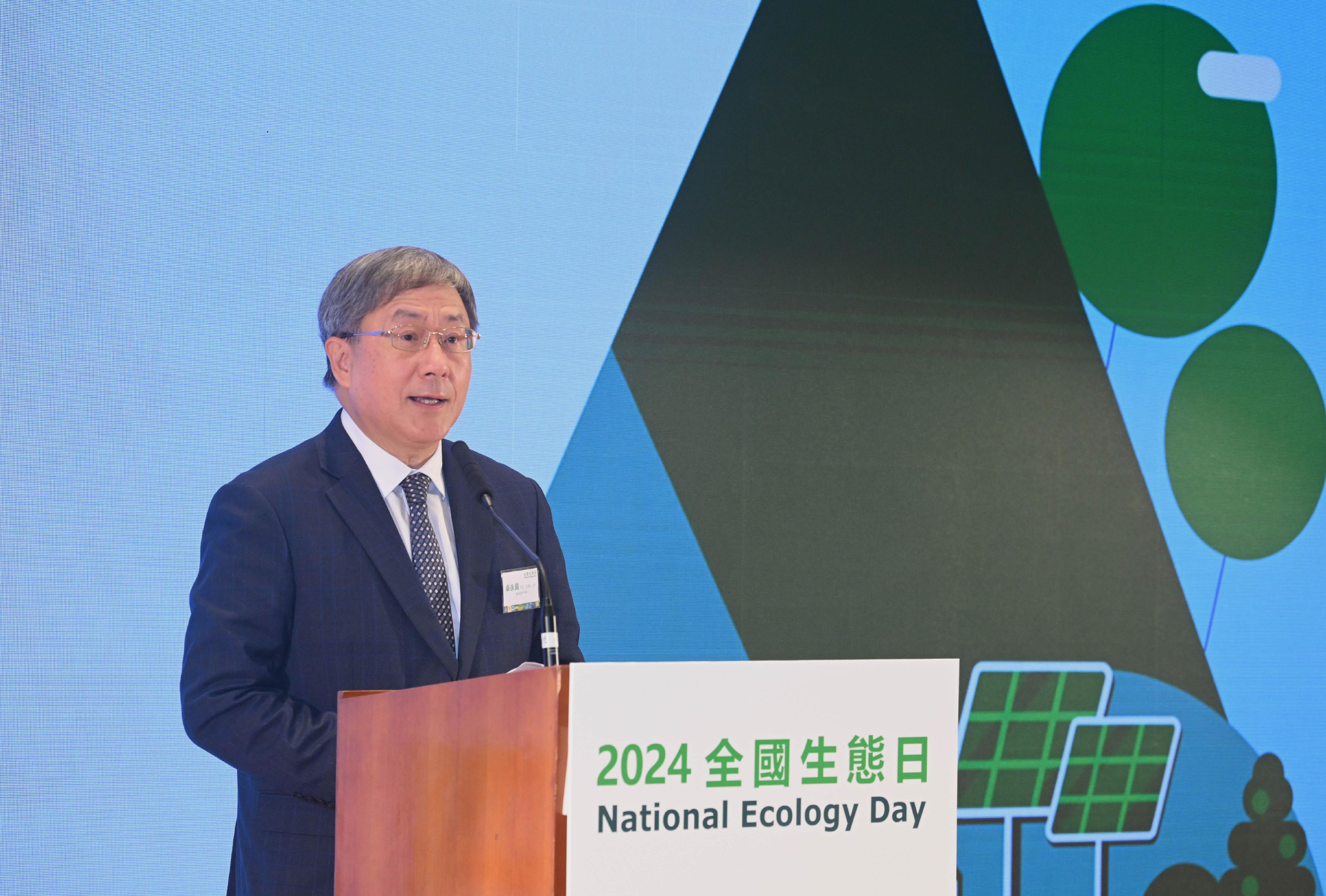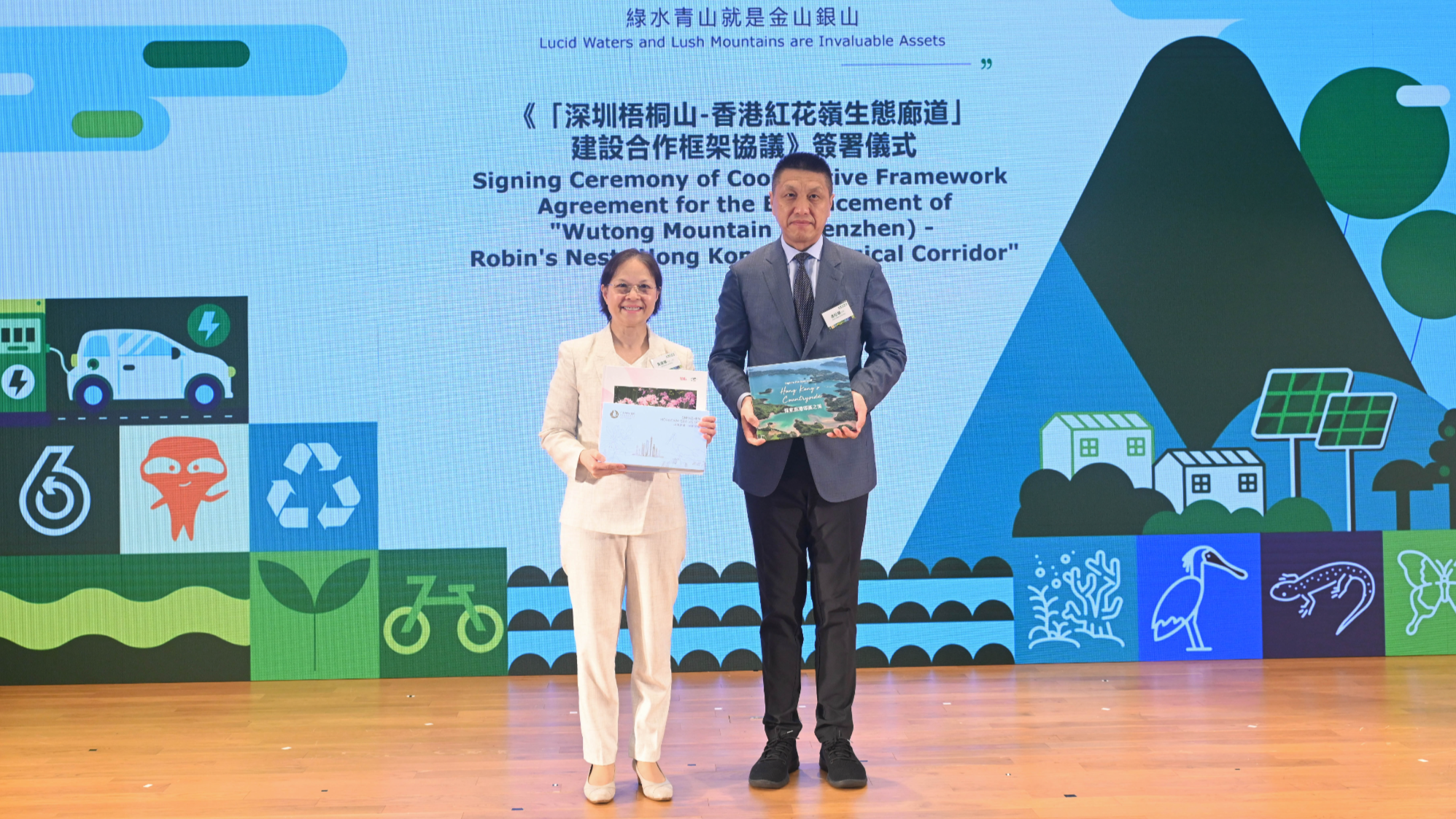
Hong Kong is positively responding to the country's call to enhance ecological protection by setting up more ecological parks and strengthening cooperation with the Chinese mainland, officials said on the second National Ecology Day on Thursday.
During the ceremony to launch the occasion, the Hong Kong and Shenzhen governments signed an agreement to build an ecology corridor between Hong Kong’s Robin's Nest — a hill located in Robin's Nest Country Park — and Shenzhen’s Wutong Mountain.
Officials also revealed that the North Lantau Marine Park — the largest marine park in Hong Kong — is expected to be established in November, and the government is also actively promoting the establishment of the Sam Po Shue Wetland Conservation Park in the Northern Metropolis.
READ MORE: Hong Kong holds activities to support National Ecology Day
On Aug 11, the nation issued a guideline document on accelerating the green transition in all areas of economic and social development, marking the first systematic deployment of green targets at the central level. The theme of the second National Ecology Day was “accelerating green transformation”.
Acting Chief Secretary for Administration Cheuk Wing-hing said that the Hong Kong government is dedicated to conserving Hong Kong's natural ecology.
Hong Kong currently boasts 25 country parks and 22 special areas, with over 40 percent of its land protected by legislation, surpassing that of many cities undergoing similar economic development in terms of conservation efforts, Cheuk said.

He noted that, besides the latest development of the city’s two new conservation parks, the North Lantau Marine Park, once established, will be the city’s eighth and largest marine park, covering about 2,400 hectares of water.
Together with the two existing marine parks in the vicinity, the new park will enhance the conservation of Chinese White Dolphins and other marine life, as well as further promote educational, recreational and ecotourism activities.
The HKSAR government is also progressing with establishing the Sam Po Shue Wetland Conservation Park in the Northern Metropolis. With the park, which is five times larger than the existing Hong Kong Wetland Park, the government aims to improve the quality of the habitats and biodiversity in the Deep Bay area, as well as increase the environmental capacity of the Northern Metropolis to achieve the co-existence of conservation and development, Cheuk said.
Xu Songming, chief of the Planning and Natural Resources Bureau of Shenzhen Municipality, said he believes that the agreement for the ecological corridor signifies a new beginning for deepening ecological cooperation between Hong Kong and Shenzhen.

Xu said he hopes the two sides can carry out cooperation and exchanges at a deeper level and on a wider range of matters to tell a good story about China's eco-civilization construction.
To improve the public’s awareness of ecology protection, an array of activities will be launched in the upcoming two weeks.
The Hong Kong Wetland Park offered free admission and activities on Thursday. The government also launched activities to promote public participation in recycling on the same day.
READ MORE: 'Beautiful HK' campaign brings residents closer to nature
Over 30 nongovernmental organizations pledged to offer various activities and concessions from Aug 15-31, including free admission to facilities, free guided ecotours, night safaris, workshops and seminars.
A thematic exhibition will be held at the Central Atrium of Olympian City 2 from Aug 16-21 to showcase the culture and nature ecology of Hong Kong's countryside through a variety of displays, virtual reality games and interactive zones.
Residents can also apply for four nature exploration tours organized by the government in Pok Fu Lam Country Park and the Lions Nature Education Centre.
A symposium for National Ecology Day was held after Thursday’s launch ceremony, with speakers including professors from mainland and local institutions.
Contact the writer at atlasshao@chinadailyhk.com


